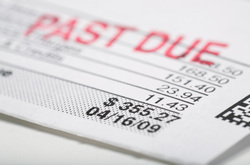 Many people have misconceptions about a short sale and how it works. Many people think that the seller's Realtor and the seller are required to submit all offers to the short sale lender. It is the owner’s house. If they want to sell the house or not, then it is their decision. The only role of the lender is to approve or deny the short sale offer.
The lender is interested in getting the highest offer so they can reduce their losses as much as possible. It is quite possible that more than one potential purchasers are interested in buying the house. However, it is the seller’s decision to choose which one to submit to the short sale lender. It is not a necessity that the Realtor submits all offers to the lender because the lender is only interested in the best bid.
The remaining offers can be kept as backup offers in case the original offer doesn't go through. Some lenders require the Realtor to submit all offers, but that is not usually the case. A purchaser may feel that their offer is being withdrawn or withheld from the bank intentionally but there is nothing one can do about it. Think about it. If your offer is not as good as the others, then it would not make any sense for the Realtor to present your offer to the lender. Even if he did present all offers before the lender, it is most likely that the lender will choose the highest offer.
 A recent episode of the hit TV Show, Burn Notice had an important lesson. The star of the show is a no nonsense spy named Michael Westen. A guy calls him and tells him that some bad guys are after both of them. Michael says that in spy work you learn that a hot lead needs to be followed up on right away.
"I'll be right over," he tells the guy. Then he rushes over to the guy's place to meet with him. He shows up to find the guy has been murdered. He lost out on any information he could have gotten from him. I think we have all learned that lesson. Sometimes in life things need to be dealt with right away. If not, then you miss your opportunity. This happens in real estate, sports and most people's work. If you delay, then the opportunity will be gone forever.
So, how does that lesson relate to short sales? There are certain times during the short sale process where you have to drop everything and rush to get something completed. Here is an example. Everything has been completed for a short sale negotiation. You have sent the bank everything they have requested up to that point. The bank has all of the information they need to make a decision on the short sale file. The bank's short sale negotiator contacts you and tells you that the short sale will be approved.
However, the buyer needs to pay $364,000 for the house versus the $360,000 that was offered. In addition, they need a certain document from the short sale seller. Then they give you the deadline. "If I don't have this stuff within three days, I will close the short sale file," they tell you. After that, you rush to get everything completed. It usually takes 30-60 days of hard work for us to have gotten to this point. We know that if we don't get the short sale negotiator what they want, then we will have to start the entire short sale process all over again.
We will have wasted 30 to 60 days and put our seller at greater risk of losing their home to foreclosure. So, we get to work right away and track down all that information. If we can get the necessary items, then the short sale will be approved. But if not, then all our work will have been in vain and we will have to start the process all over again.
 Let's say a friend owes you a thousand dollars. They come to you with a sob story about how they are broke and cannot afford to repay you. "I am so broke that we are about to lose our car. And the electricity was turned off last month when we missed the payment. I can't even afford diapers for our son", they tell you.
You tell them just to forget about the debt. "Don't worry about paying me back. I don't want to be a burden on your family", you tell them. A few days later you are scanning Facebook and see pictures of them on vacation in Miami. You realizes they had lied to you. It's obvious that they weren't broke if they could afford a fancy vacation in Miami. How would you feel?
I tell this story to make my point. Are you trying to convince your bank to approve your short sale and allow you to walk away from your debt? Well, why should they do that? Lenders and debt collectors may look you up on Facebook. If they see you went on a fancy vacation, then they may not forgive the debt. They tell you, "It's obvious that you are doing well financially. I just saw your Facebook profile and the pictures of you on vacation at the Ritz Carlton in Miami. We aren't releasing you from the debt." Not a fun ending, is it? If you are considering a short sale, then watch what you post on Facebook, Twitter, etc.
 Many homeowners do not understand the foreclosure process and how it works. A recent story I heard illustrates this. A homeowner's lender told them that a foreclosure auction date had been scheduled for their home and that they should move out. The homeowners moved out a few weeks later. Three years later they notified of a lawsuit against them. Someone had tripped on their sidewalk and hurt themselves. They were suing the homeowner because they were still the owner of the home.
"You can't sue me! I don't even own that home anymore," the homeowners told them. They did some research and found out that they were still the owner of the home. It turns out that for whatever reason the foreclosure auction on their home had been canceled. Now, three years later they still own the home and are being sued as a result! Did the person at the bank lie to them? No one knows for sure.
The lesson of this story is that you should check the court records before moving out of your house or deciding that a short sale is not for you. Most short sale agents understand how to look up these records. They can tell you about the foreclosure case and whether or not you have enough time to attempt a short sale.
The other lesson is that you should never move out of your house until after the foreclosure auction has been completed. Most banks will even give you cash to move out after the foreclosure has completed. They know that an eviction is expensive and can take a long time.They know that giving someone $1,500 to move out is less expensive than paying $800 to file an eviction and waiting 2-3 months for an eviction to be approved.
 It is possible to sell your home if you have multiple mortgages. But, it can be difficult. This is something many short sale homeowners have to consider because they have multiple mortgage. All the mortgages on the property will have to be satisfied before you can give clear title to the buyer. But the most important negotiation is the one which has to be made with the lenders; which will be two or three in case of multiple mortgages on your home.
Negotiating with two or more lenders might seem to be an intimidating task. But you do have a strong negotiating position because second mortgages typically receive nothing if the home is foreclosed by the primary lender. It is also possible for the first mortgage company to reject a short sale offer if they thinks that they can do better with a foreclosure. Most second mortgages lien on the property is wiped out in a foreclosure.
They will opt for that if the second mortgage is demanding to much money to approve the short sale. A second or third mortgage is called a junior mortgage. (Third mortgages are rare. We have never seen a fourth mortgage on over 100 short sales we have worked on.) The junior mortgage received a much smaller percentage of whatever they are owed. Most of them agree to the short sale with them being paid $3,000 and sometimes less than that. The easiest second mortgage negotiations are short sales of piggyback loans. A piggy back loan is the junior mortgage when a single bank issues two mortgage against the same house.
This was very common during the housing boom. The loan officers at many banks offered this combination to borrowers. The costs were usually lower than getting just one mortgage and the banks agreed to the loans. This piggy back loan is the second mortgage which is written off by the same lender as of the first mortgage. In this case the Realtor or the home owner will be able to negotiate with a single person at the bank that is handling the two loans.
 Short selling a home is not always an easy task. Many people make a number of mistakes, inadvertently, not knowing of the legal repercussions that follow. If you are someone interested in selling their house via short sale, then you should be aware “buy and bail”. Buy and bail is a mistake some short sale sellers make by purchasing a new house and walking away from the old one because it is 'underwater.’ This is a method that short sale sellers may use because they feel that their current situation may never improve. So, they buy a new home at today's lower prices.
This is considered ‘mortgage fraud’ and could have serious legal consequences and that’s the last thing you want. Many homeowners may buy and bail and believe that what they are doing is justified because they were misled. For example, a real estate agent may have led the buyer to believe that home's value would never fall. Another possible scenario is that a bank may have told the homeowner that refinancing would be an option that would always be available to them. Then, the bank changed their lending policies and the buyer cannot obtain a new loan.
These are scenarios where a homeowner may feel like they were deceived. Do not make the mistake of doing this, no matter how deceived you may feel, because you may end up going to jail. Buy and bail is considered a mortgage fraud because often the borrower does not reveal certain information such as their intention to discontinue making payments to another creditor. That is the part that is considered fraud. It is punishable by up to 30 years in prison and a fine of up to $1,000,000. Doesn't sound like fun, does it?
If you do want to short sale and buy another house, then make sure you talk to competent legal counsel before trying this or a similar strategy. They will be able to tell exactly what is illegal and what is now illegal. With their guidance you may be able to buy another home and then short sale and do it legally.
 It is thought that lenders tend to permit short sales only when and if a borrower has missed a payment. This is not true. Lenders also take into account other hardships the borrower may be encountering such as a divorce, job transfer, relocation, etc. No lender will consider a short sale just because a borrower has missed a payment. The lender also looks at the borrower’s financial status including tax returns, budget, bills, income, etc. After reviewing that documentation they decide whether or not to approve short sale. A lender will first look at the borrower’s ability to pay back the mortgage. Some people have a hardship that they project will cause them to fall behind on payments in the future. But, they haven't fallen behind yet.
In this situation, then the lender will see that they will have to liquidate the property one way or another. If they conclude that a sale of the property is inevitable and that a short sale will be the best way to cut their losses, then they will approve the short sale. We have also seen lenders approve short sales even if someone's hardship didn't put them in a position where they couldn't make their payments. But, the person must move and is unwilling to accept a deficiency payment for their upside down home. A good example of this is a credit worthy person with a stable, solid income who has a job transfer. That person is upside down and unwilling to repay the lender for the loss. The lender knows from past experience that going thru the foreclosure process and then trying to collect from the borrower is hopeless.
First, the foreclosure process will take longer than a short sale and cause them to lose even more money. Second, they know that the borrower has the option to declare bankruptcy and use other actions to avoid paying the lender. Third, many states do not allow the lender to pursue a borrower for the loss after a foreclosure. So, they lose money on a foreclosure that takes a long time and get zero from the borrower. Based on their prior experience they know that a short sale will be their best option to reduce their losses as much as possible.
 We recently closed another short sale. This short sale lender was so much more fund to work with than most lenders. The loan was owned by Household Finance, which is a division of the international lender HSBC. We were assigned a short sale negotiator about 30 days after we submitted the short sale application. The short sale negotiator responded to us quickly.
If we sent her an email, then we received a reply within a day or two. Contrast that with waiting for a week or more for a reply to an email with other lenders. The short sale negotiators at the big national lenders often take a week or more to reply to an email or voice mail. Now, I am sure you are wondering why this is happening?
Why can't the big national banks do a better job on short sale? Here is what I think. I have noticed one big difference between the loans that the big US based banks have and the loans that HSBC has. HSBC owns their loans. If they don't handle short sale negotiations properly and lose money as a result, then that affects their bottom line. HSBC stands to make or lose money as a result of their actions.
Contrast this with the large us based banks. One large national US bank does not own 80% of the loans they handle. Who cares if things are being handled properly? It's no big deal when a short sale is denied and sells for 40k less a foreclosure. They aren't losing the money. Someone else is. The sad thing is that usually that person is Uncle Sam. This is because Uncle Sam owns or insures about 65-70% of all the mortgages in America. Fannie Mae and Freddie Mac own about 55% of all US mortgages.
The rest are insured against loss through FHA, USDA, and VA. If an FHA loan goes bad, then FHA takes the loss. Many experts are saying that FHA will need a bailout soon. They estimate that FHA could lose up to 50 billion in coming years. This means people buying a home today will pay more for an FHA loan. Uncle Sam may have to bail them out. The big national banks could do a better job ad short sales and other aspects of loss mitigation.
That would substantially reduce the losses on bad loans and help Uncle Sam avoid another bailout.
 A Short Sale can help you avoid owing your bank for losing money when they reject a short sale offer. Here is an example of how a bank lost money by delaying the short sale process. We listed a property as a short sale. The home had been listed with another agent. That agent had actually sold the home for 150k. However, they couldn't convince the lender to approve the short sale.
As a result, the buyer canceled their contract and started looking at other houses. We put the property on the market and received a 140k offer. We submitted it to the bank. The bank ran their numbers and said that the minimum they would accept was 141k. As a result, the bank lost 9k. Actually, it wasn't the bank that lost that money.
The loan was owned by a Wall Street Trust. Common owners of these trusts are Pension Funds like CALPERs. So, as a result of this bank's incompetence a person's retirement was affected. This is a good example of why an experienced, competent short sale agent is so important. They can make the difference between success and failure on a short sale.
 Here is a success story on a short sale that the Stop Foreclosure Institute worked on for a long time. This was a very difficult short sale and it dragged out for over a year.
The reason that this short sale drug out for such a long time is because the short sale lender thought that the house was worth more than its actual value. Imagine that you were a bank losing hundreds of thousands of dollars on a loan. You hire an appraiser and he says the house is worth 380k. Would you accept a short sale offer for 275k? No!
We had the home on the market for six months and 275k was the highest price any buyer was willing to pay. Here is why there was such a big discrepancy between what a buyer was willing to pay and what an appraiser thought the house was worth. The house was located in the country about 12 miles outside of town. Most people will pay more for a house that is located closer to town. Three miles east of this house was an upscale area of luxury homes.
Most of these homes were located in well-maintained gated communities. The person who appraised this home used those homes as comparable sales for the appraisal. But it gets worse. This home had no garage and was located down about a mile of dirt road and surrounded by lower priced homes. The comparable sales the appraiser used were an apples to oranges comparison. That was why the home was not selling for what the bank thought it was worth. We submitted two different short sale packages over the course of nine months.
Both times the bank told us they wouldn't approve the short sale because they thought the home was selling for less than it was worth. We finally lucked out on the third short sale offer. This time the home appraised at an accurate value, and the bank approved the short sale. However, the home had declined in value over the past year. It sold for 235k. Yep, that's correct. The bank lost over 40k because they used inaccurate appraisal data to make a decision on the short sale. The motto of this story is that most short sale problems can be solved with time and persistence.
|











 RSS Feed
RSS Feed